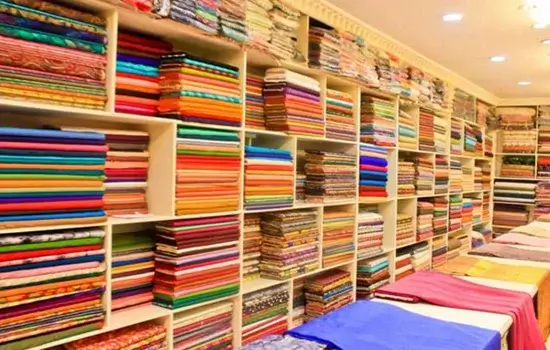Starting a textile business in India is like jumping into a big and varied industry. This guide helps you set up your textile business step by step. First, get what’s popular in the market, like what fabrics and styles people like. Decide what makes your textiles special, like focusing on cotton or sustainable options. Follow the rules, register your business, and get the licenses needed. Connect with reliable suppliers, make a simple website to show your textiles, and think about having a physical store too. Use social media to tell people about your textiles and give good customer service. This guide is your plan for success in India’s textile business.
Steps To Follow To Start Textile Business in India
1. Market Research:
Before starting your textile business in India, check what fabrics and styles people like. See what’s trending and look at other textile businesses. Understanding your customers helps you decide what types of textiles to offer. Good research guides your choices for success in the competitive market.
2. Define Your Niche:
Determine what sets your textile business apart by choosing a specific focus, such as specializing in cotton or sustainable options. This decision distinguishes your business and clarifies your offerings for customers.
3. Legal Compliance:
Follow rules, register your textile business, get licenses, and operate ethically. This ensures smooth functioning, builds trust, and avoids legal issues. Stick to rules from the start for a trouble-free business.
4. Sourcing Suppliers:
Connect with reliable suppliers for your textile business. This could be local weavers or international partners. Building good relationships with suppliers ensures a steady supply of high-quality textiles for your business.
5. Online Presence:
Be online for your textile business. Create a simple website showcasing your textiles and consider selling on e-commerce platforms. This online presence makes it easy for customers to find and buy your textiles. Use social media to share updates and connect with your audience. Being online is crucial for the success and visibility of your textile business in today’s market.
6. Offline Presence:
If feasible, set up a physical store or collaborate with retailers. Having a visible offline presence allows customers to experience the texture and quality of your textiles firsthand.
7. Pricing Strategy:
Set competitive prices for your textiles. Consider production costs, fabric quality, and what others are charging. Offering a range of price points accommodates different customer budgets and helps your business attract a diverse clientele.
8. Marketing and Branding:
Invest in effective marketing strategies. Utilize social media, influencer collaborations, and traditional advertising to build brand awareness. Highlight the unique aspects of your textile collection to attract customers.
9. Customer Engagement:
Engage with your customers actively. Respond promptly to inquiries, run promotions, and encourage customer reviews. Building a relationship with your customers through good engagement helps create loyalty and contributes to the success of your textile business.
10. E-commerce Platforms:
Consider selling your textiles on popular online platforms. This expands your reach to a wider audience, tapping into the convenience of online shopping. Utilize established e-commerce platforms to benefit from their existing customer base and streamline online transactions for your textile business.
11. Customer Service:
Make sure to provide excellent customer service for your textile business. Give accurate information about your products, ensure on-time deliveries, and address customer concerns quickly. Positive interactions contribute to customer satisfaction and loyalty, which are crucial for the success of your textile business.
12. Collaboration with Designers:
Work with designers to create exclusive textile collections. Collaborating with local and international designers adds uniqueness to your offerings and attracts customers seeking one-of-a-kind textiles. This partnership enhances your textile business and can contribute to its success.
13. Packaging and Presentation:
Pay attention to attractive packaging. Well-presented textiles enhance the overall customer experience and reinforce the premium image of your brand.
14. Seasonal Collections:
Introduce new collections based on seasons. For example, align with festive times or special occasions to keep your textile inventory fresh and interesting. This helps attract customer interest and keeps your business dynamic.
15. Networking in the Industry:
Connect with others in the textile industry. Attend exhibitions, trade shows, and events to meet businesses, designers, and influencers. Networking helps you stay updated on industry trends and can lead to beneficial partnerships for your textile business.
Wrapping Up
In conclusion, starting a textile business in India requires a blend of industry knowledge, business acumen, and effective marketing. By following these steps, you can create a successful venture that caters to the diverse and ever-evolving textile market in India.















